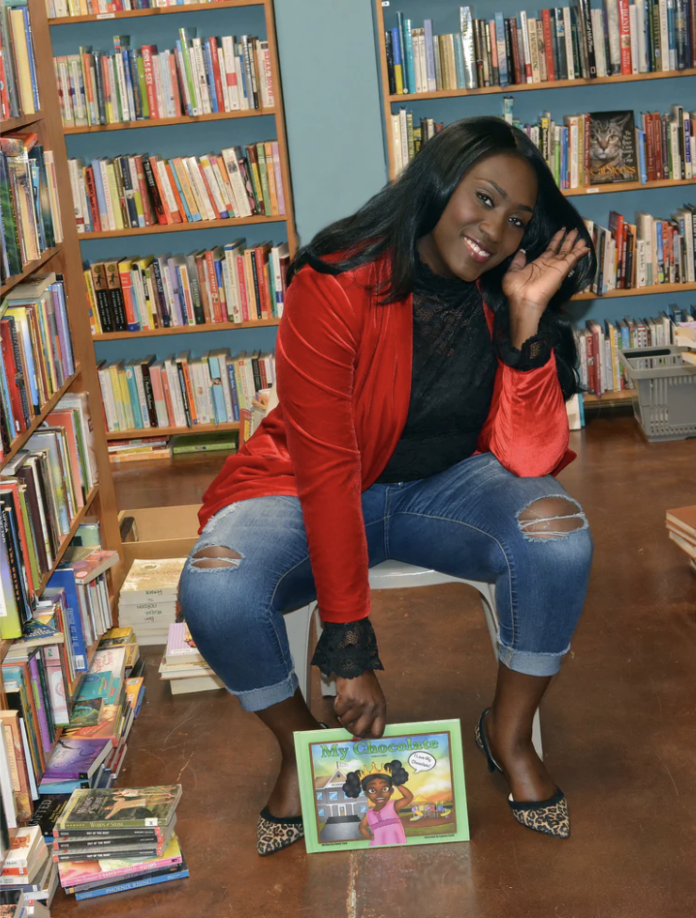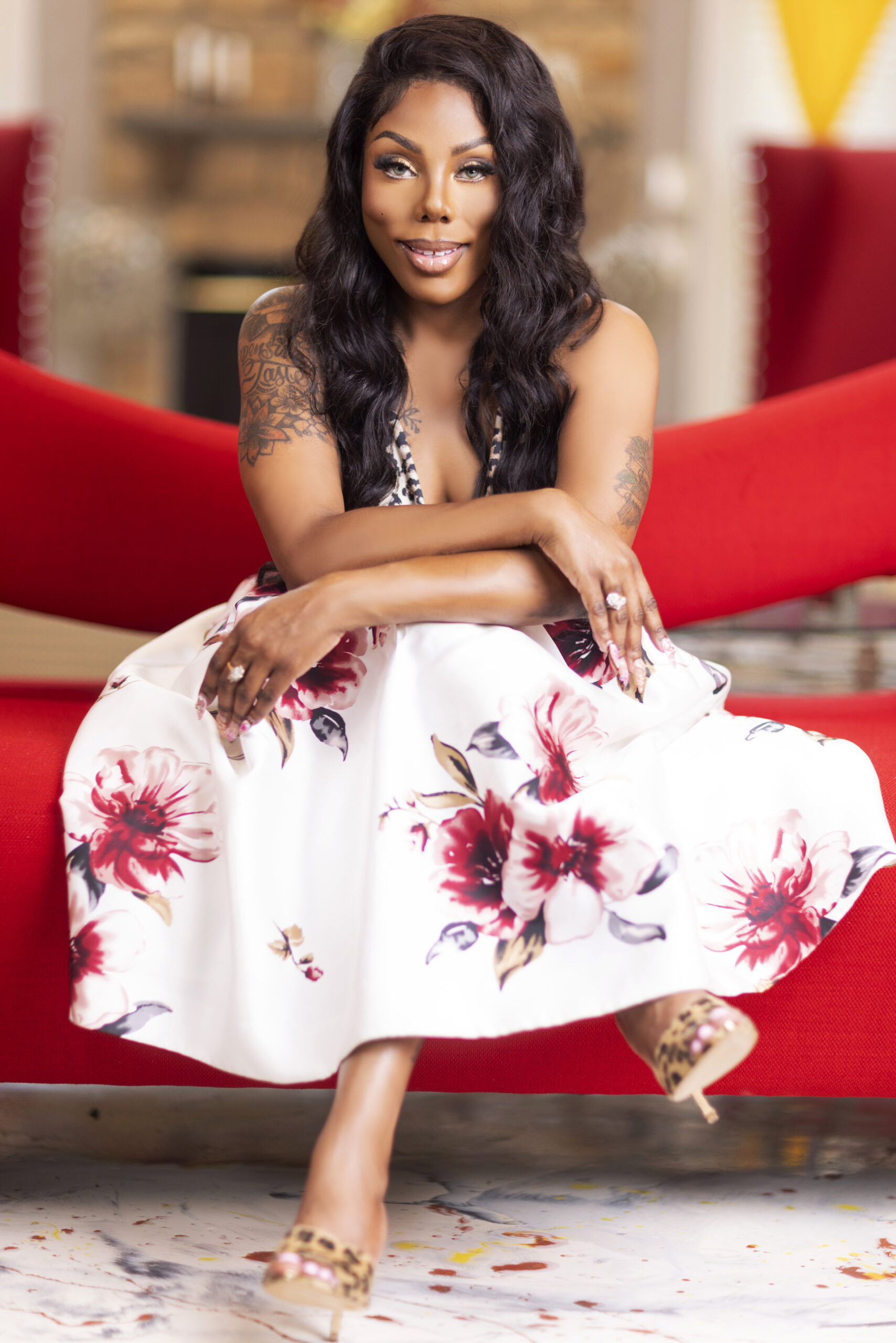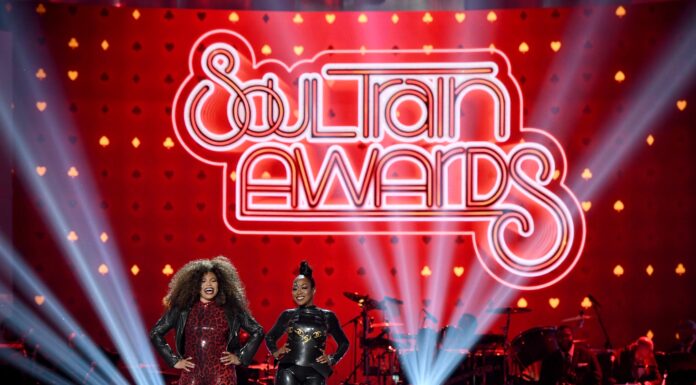( ENSPIRE Community Spotlight ) Clover Ford’s “Hopeless Romantic” Explores Black Relationships
ENSPIRE Contributor: Mayleen Marrero
Clover Ford’s ambition to inspire people is the foundation of her storytelling passion. Ford experienced bullying related to colorism and discrimination as a child in a multicultural environment because of her darker skin tone. Her determination to make a difference inspired her to question social standards and highlight the strength and beauty of dark-skinned women.
Upon realizing the biases and prejudices experienced by individuals with darker skin tones, Clover founded a brand that would transform their voices and challenge socially accepted beauty standards. Acknowledging the transforming potential of media, she stepped into the storytelling and produced content that profoundly impacts viewers. Ford developed a social media community on “My Chocolate” by showcasing the resilience and beauty of people with darker skin tones.
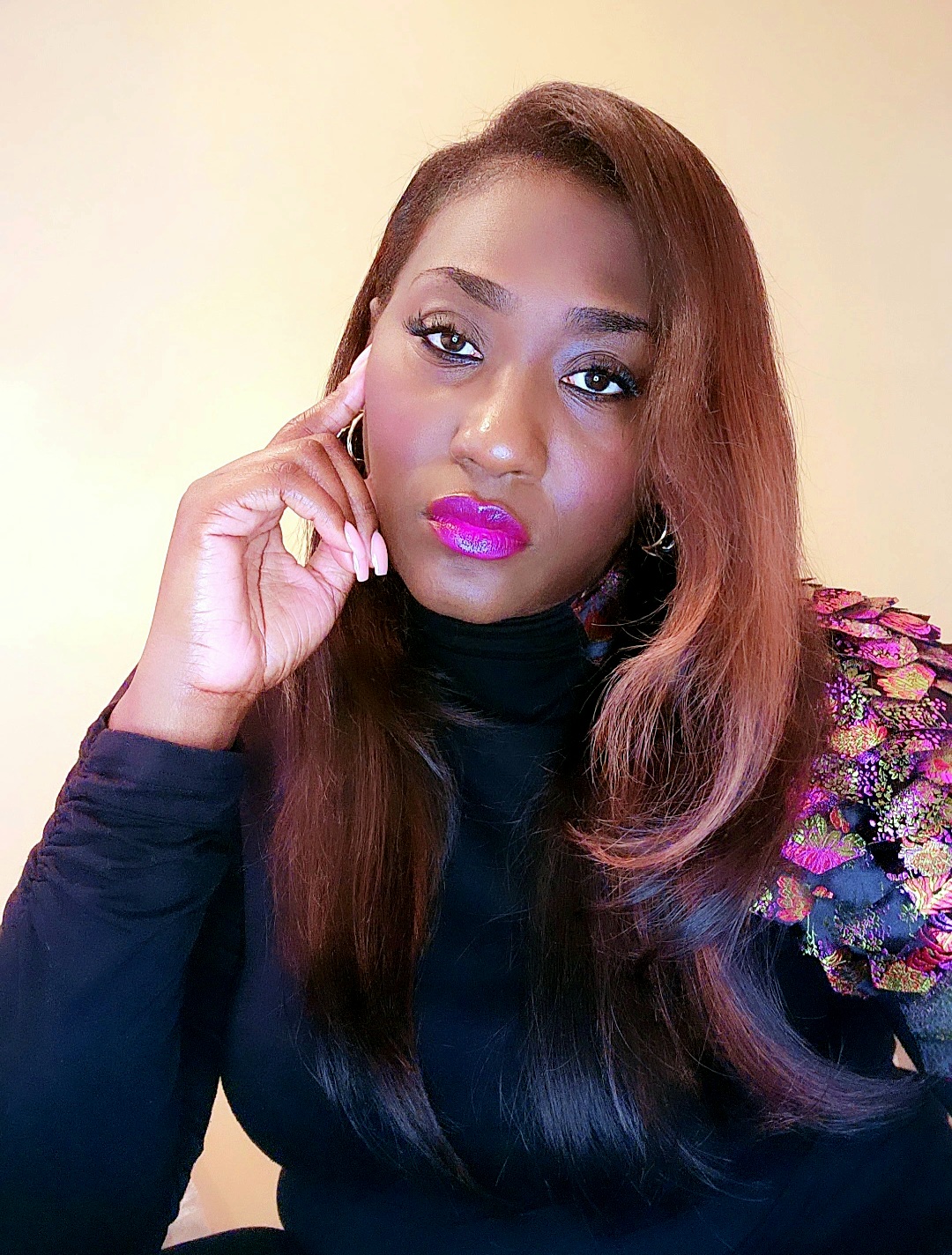
The publication of her children’s book “My Chocolate” was one of clover’s most important attempts to alter the narrative. Ford expressed and voiced the story, which promotes self-love and encourages young people to embrace their skin tone. Passionate about telling stories, Ford aspired to become more influential. Making films gave her a sense of empowerment and comfort, and the outcome was her breakthrough series “Hopeless Romantic.”
This web series is the first film under Ford’s production firm, My Chocolate Films, LLC. Clover uses the web series as a platform to discuss the complexities of love and relationships while providing underrepresented communities a voice. The show portrays the shortcomings and victories that define humanity. Through well-constructed storylines, Ford’s work challenges social norms and promotes a range of viewpoints. With excellent reviews, “Hopeless Romantic” wrapped up its first season and prepared for a comeback. The series may be viewed on Tubi, the well-known streaming service from Fox.
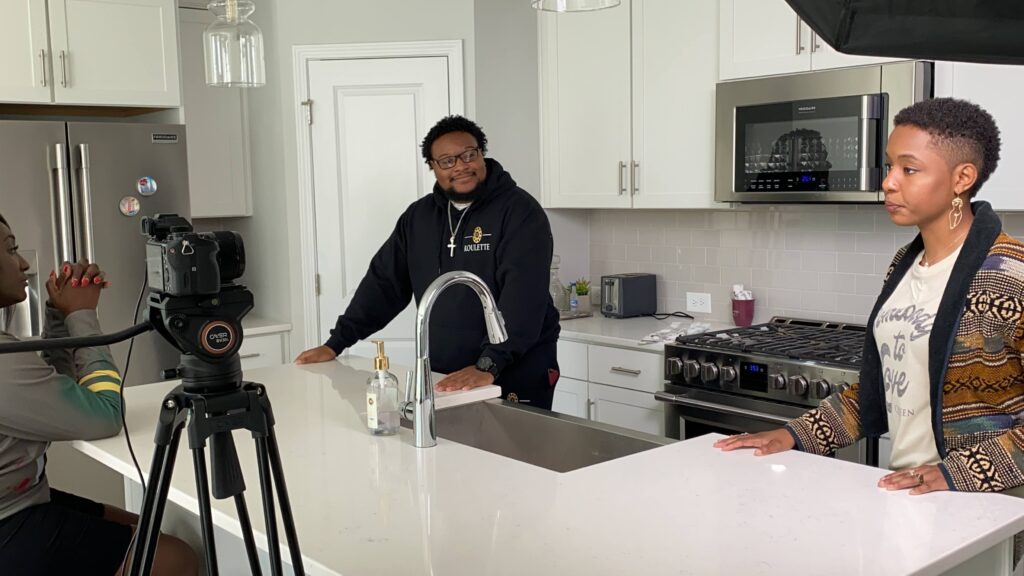
Besides developing Hopeless Romantic’s second season, Clover has been hard at work creating an environment where artists of all levels can come and create their work and start forming communities. Ford continues to use her platform to promote against colorism outside of her visual and artistic pursuits. She accomplishes this by planning workshops, empowering events, and awareness campaigns. She is a source of inspiration, giving her time and resources to create a welcoming environment where women and girls with darker skin tones have the chance to thrive, accept their beauty, and be proud of who they are.
Her influence goes much beyond the confines of the entertainment world. Her dedication to empowering others has had a great knock-on effect on several communities. Clover keeps pushing the boundaries, bridging the gap between activism and filmmaking, one story at a time, using her strong voice to redefine beauty standards and tear down colorism.
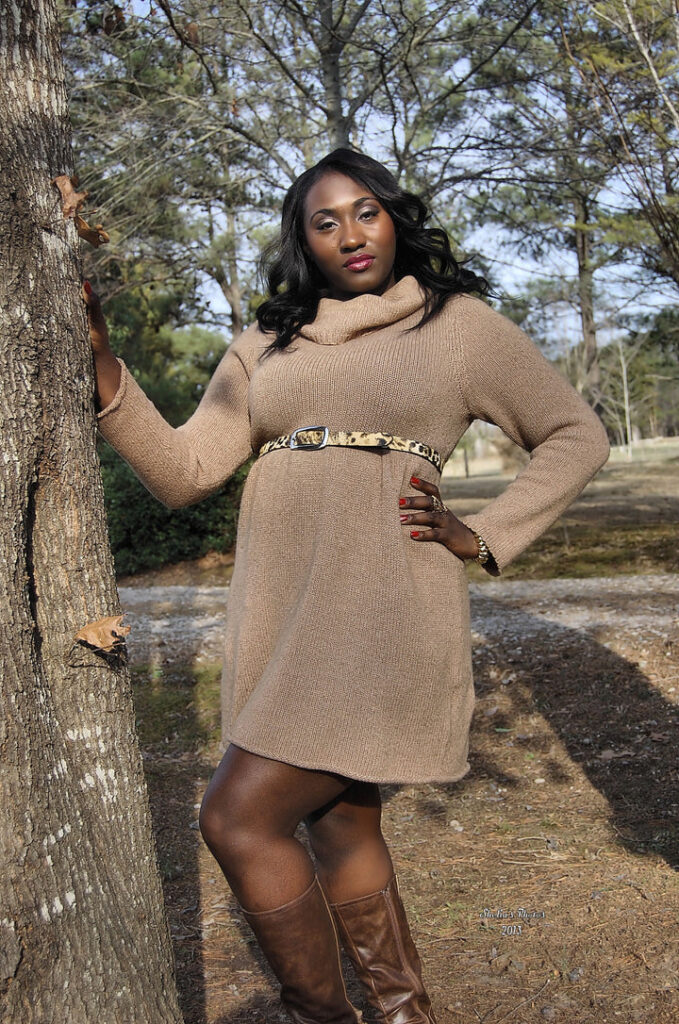
ENSPIRE had the privilege of interviewing Clover Ford, and this is what she had to say:
How did early experiences with colorism influence your mission to challenge societal norms and uplift dark-skinned women?
“As an adult, I began reflecting on what I experienced as a child, thought about how that affected me, and wanted to be a source of encouragement. The old saying “kids can be cruel” is supposed to excuse them, but it can stick with someone. My children’s book “My Chocolate” tells the story of a child who experienced it and learned to love their skin and find self-confidence.
And now, as an adult, I use “Hopeless Romantic” to show Black women of all shades as love interests, objects of affection, being loved properly, etc. These are things that mainstream media misses; we don’t get to see dark-skinned Black women as the lead without tragedy or negativity attached to it.”
What is the most surprising thing you learned while writing “My Chocolate”?
“I learned that those negative feelings from the bullying could, unfortunately, stick with you and either cause a complex or fuel to defy them. I also realized that the stigmas of colorism are so embedded in the Black community that they carry from our childhood and interactions as kids and trickle down into our interactions and lives as adults. Colorism is a vicious cycle, and mindset is doing a disservice to our community.”
Your children’s book, “My Chocolate,” promotes self-love. What inspired its creation, and how do you see it impacting the conversation on redefining beauty for the next generation?
“My experiences as a chocolate child, family members, and friends contributed to the story behind “My Chocolate.” My main goal was to make it comprehensive for children. Children are so easily influenced, so when the thoughts imposed on them are negative towards themselves or others, that sticks, and I wanted to be a positive voice in all of that.
Hopefully, the book teaches younger generations to be kinder to themselves and others. They learn to stick up for themselves. Most importantly, they learn to love themselves despite what they may see in the media or hear from others.”
With positive reviews for the first season of “Hopeless Romantic,” how has audience response influenced your approach to the upcoming season?
“We wanted to incorporate more of their suggestions to make the scenes and stories more personal and realistic. Since I am not the ‘hopeless romantic,’ I keep my ear to the streets and the fans! It also told me that we were doing something right, so I just wanted to continue to capitalize on it. That means developing the characters and the storylines and just keeping that momentum.”
Operating at the intersection of advocacy and filmmaking, how do you navigate challenges in promoting inclusivity in the entertainment industry through My Chocolate Films, LLC?
“Amazing question! Promoting inclusivity in the entertainment industry at the intersection of advocacy and filmmaking involves navigating various spaces, and we are looking to ramp up everything with this season.
We pay attention to the representation of diversity; although the show is centered around Black characters, that’s not the real world, and I want the show to depict those interactions between all races. I also may make it my business to include LGBTQ+ characters and storylines because regardless of who you love, your love deserves to be celebrated and represented. So overall, inclusive storylines are so important; that’s the reason behind “Hopeless Romantic” because I saw a void and wanted to feel it, so I think it’s my responsibility to keep that up.”
Beyond creative projects, you actively organize events against colorism. Can you share initiatives you’ve undertaken and the observed impact within engaged communities?
“In the past, I utilized my platform to hold “Conversations with Clover,” where I would invite a diverse group of women to speak about relationships, colorism, and other various topics. Last year, I spoke on a panel with the Girl Talk Foundation of Charlotte. The importance of loving each other for who we are and not the color of our skin is one point I discussed. I also educated the girls on the origination of colorism and how it still impacts us as a community.
I have focused a lot of my time and attention on letting Hopeless Romantic be my voice and speak for me on these topics. However, I look forward to doing more with younger girls and teens next year, focusing on self-love and confidence. I also want to continue facilitating conversations with adults about honest relationships and toxic thoughts that we have to dispel.”
As an inspiration for positive change, how do you see storytelling’s role in dismantling colorism and redefining beauty standards on a societal level?
“Storytelling plays a pivotal role in dismantling colorism and redefining beauty standards on a societal level by influencing perceptions, challenging stereotypes, and fostering empathy. I feel my efforts through “Hopeless Romantic” have the power to shift narratives and do the same for adults as my children’s book did for the youth.
Storytelling is a great way to promote role models and show people what is possible. “Hopeless Romantic” focuses on the details of romantic relationships and platonic relationships, handling life’s ups and downs as an adult, and just navigating through spaces.”
Looking ahead, what are your aspirations for future creative projects and continued advocacy against colorism? How do you plan to bridge the gap between advocacy and filmmaking in your career?
“The main goal is to continue to create content that focuses on diversity and inclusivity and putting those people out there who never get to be the star or focus. Black women, dark-skinned Black women, Black LGBTQ+ men and women, and everyone who only gets to be the co-star or extra, deserve to see themselves as a main character. Hopefully, my efforts will make them see they deserve that in their own life.
I also want to continue working with children and building that confidence from a young age, it’s so easily broken if not instilled early. I use my platform to create art in books, films, or TV, and I want to create that art that impacts how people view themselves and others.”
Related Articles: The Powerful Advocacy of Open My Heart Foundation, BMe Community Amplifies Black Love and Power with $370,000 in Grants to 37 BMe Vanguard Awardees Izzy Spears: Body Positive Advocate, Entrepreneur, and Author

